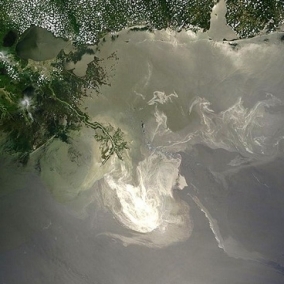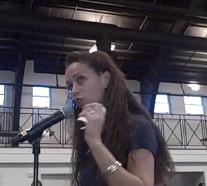Funded by the National Science Foundation, Boston University, Louisiana State University, and the National Council for Science and the Environment have created the Online Clearinghouse for Education And Networking: Oil Interdisciplinary Learning (OCEAN-OIL). The site, part of the Encyclopedia of Earth website, is open-access and peer-reviewed allowing scientists, teachers, and concerned citizens to make contributions.
OCEAN-OIL has three project goals: “(1) Spur activity to develop and share educationally-valuable resources; (2) Facilitate dissemination and adoption of these materials in education; and (3) Promote deep thinking about the relationship between humans, their needs and wants, and the Earth.”
OCEAN-OIL’s current resources include over 1000 articles on the oil catastrophe, an oil spill glossary, and resource links as well as many other resources.
The submission process to OCEAN-OIL for several of Umpteen Horizons articles relating to the gulf oil catastrophe has begun including our proposals to the Coastal Recovery Commission of Alabama (see below).
We will have an informal Future of the Gulf get-together on Thursday evening, 6:00 P.M., December 9, at the Golden Corral in the Tillman’s Corner area. If you are interested, please email me at denton2100@gmail.com.
Future of the Gulf Community Brainstorm -Proposals for the Coastal Recovery Commission of Alabama
Ecological Needs
- Clean, restore, and enhance gulf and bays
- Build and enhance 100 miles of oyster reefs and 1000+ acres of coastal marsh and seagrass – see http://100-1000.org/
- Ensure that water, air, and food are safe with ongoing long-term testing – data should be fully and immediately available to the public
- Develop comprehensive, fail-safe regulations to prevent future oil catastrophes – prevention is a great deal better than the cure
Coastal Community Participation
- Enlist local decision making and employment in coastal recovery efforts
- Invest in coastal economic opportunities to support sustainable coastal recovery and enhance Alabama’s coastal areas and waters
- Train south Alabama medical professionals to diagnose and treat environmental health conditions potentially related to the oil catastrophe
- Immediate public transparency on all issues relating to public health such as the use of dispersants in area waters and the ongoing presence of oil and other health threats in area waters
- Listen and learn from coastal communities in order to improve future responses to coastal disasters such as oil spills and hurricanes
Education and Support Initiatives for Oil-Affected Families
- Grant full scholarships for children of low-income, oil-affected families to local universities, community colleges, or technical schools
- Provide job training and a support system for coastal workers and others who have lost their livelihoods due to the oil catastrophe
- Enhance science curriculum at all levels (K through college) to better appreciate Alabama’s coastal environment and to provide appropriate service-learning programs to support the environment (see service-learning resource center at the University of South Alabama http://caslce.usouthal.edu/)
Coastal Fire Protection
- Develop a unified, comprehensive plan for coastal fire fighting resources
- Several coastal communities need multipurpose fire engines with 75-foot ladders and with storage for water and foam
- Fire and rescue response boat powered by twin engines and capable of pumping water from sea
- New bunker gear capable of protecting the well-being of the firemen and providing self-contained breathing for firemen
- Radio communications for hazardous-materials quick response needs that connect Mobile, Baldwin, and neighboring counties in Alabama, Mississippi, and Florida



